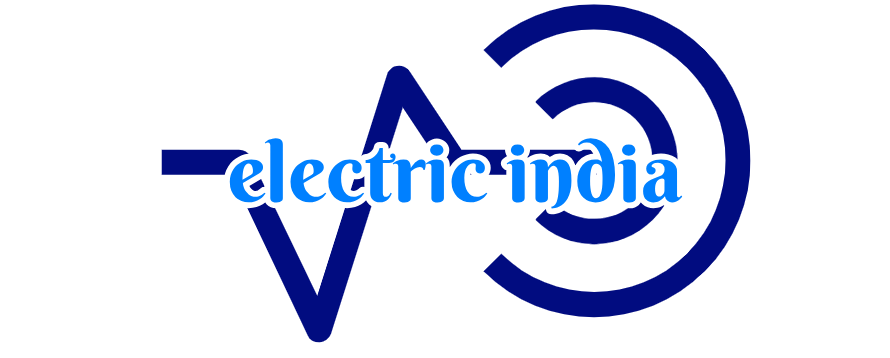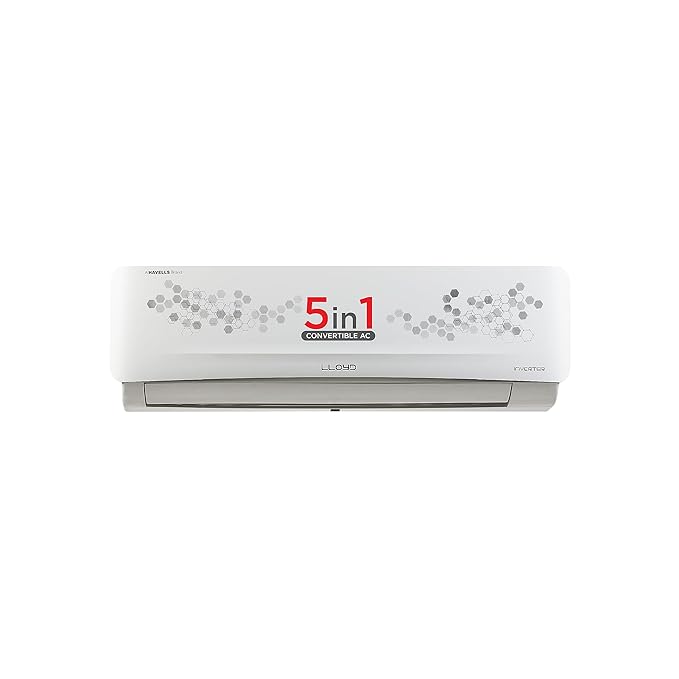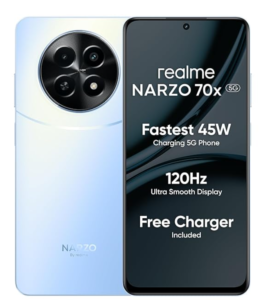Inverter air conditioners (ACs) offer several advantages over traditional non-inverter models. Here are some key benefits:
- Energy Efficiency: Inverter ACs are more energy-efficient than non-inverter models. Traditional ACs operate using a fixed-speed compressor that turns on and off to maintain the desired temperature. In contrast, inverter ACs utilize variable-speed compressors that can adjust their speed according to the cooling needs. This results in more precise temperature control and reduced energy consumption.
- Quick Cooling and Heating: Inverter ACs can achieve the desired temperature more quickly than non-inverter models. The variable-speed compressor allows for a rapid increase in cooling or heating capacity when needed, helping the room reach the desired temperature faster.
- Stable Temperature: Inverter ACs maintain a more consistent indoor temperature by continuously adjusting the compressor speed. This avoids the abrupt temperature fluctuations experienced with non-inverter models, providing a more comfortable and stable environment.
- Quiet Operation: In general, inverter ACs operate more quietly than non-inverter models. The variable-speed compressor allows the AC to run at lower speeds during periods of lower cooling demand, resulting in reduced noise levels.
- Extended Lifespan: The gradual and continuous operation of the inverter compressor can lead to less wear and tear compared to the frequent start-stop cycles of traditional compressors. This potentially contributes to a longer lifespan for the inverter AC unit.
- Lower Electricity Bills: While inverter ACs may have a higher upfront cost, their energy efficiency often results in lower electricity bills over time. The ability to adjust the compressor speed based on demand leads to significant energy savings compared to non-inverter models.
- Environmentally Friendly: Due to their energy-efficient operation, inverter ACs contribute to lower greenhouse gas emissions. This makes them more environmentally friendly and aligns with efforts to reduce energy consumption and promote sustainability.
Disadvantages of Inverter AC
It’s essential to consider factors such as room size, local climate conditions, and specific model features when choosing an air conditioner. Overall, the advantages of inverter ACs make them a popular and preferred choice for many consumers seeking efficient and reliable cooling and heating solutions.
While inverter air conditioners (ACs) have several advantages, there are also some potential disadvantages to consider:
- Initial Cost: Inverter ACs typically have a higher upfront cost compared to traditional non-inverter models. The advanced technology and variable-speed compressors contribute to the increased initial investment. However, it’s important to weigh this against potential long-term energy savings.
- Complexity and Repairs: Inverter ACs are generally more complex than non-inverter models due to the variable-speed compressor technology. While they are designed to be durable, repairs may be more complicated and could potentially be more expensive.
- Maintenance Costs: Maintenance costs for inverter ACs might be higher than those for non-inverter units. Regular maintenance is crucial for optimal performance, and the complexity of the inverter system may require specialized servicing.
- Compatibility Issues: In some cases, inverter ACs may not be compatible with existing HVAC systems, especially if there are differences in voltage requirements or other technical specifications. This could add to the overall installation costs.
- Sensitivity to Voltage Fluctuations: Inverter ACs can be more sensitive to voltage fluctuations. While they are designed to handle a certain range of fluctuations, extreme voltage variations may affect their performance and lifespan.
- Limited Cooling in Extreme Temperatures: In extremely high or low ambient temperatures, the efficiency of inverter ACs may decline. Some models may struggle to provide the same level of cooling or heating efficiency during temperature extremes.
- Noise Levels at High Speeds: While inverter ACs are generally quieter during low-speed operation, they may produce more noise at high speeds when the compressor is operating at maximum capacity. This noise level can still be lower than that of traditional non-inverter ACs.
It’s important to note that the disadvantages mentioned above can vary depending on the specific make and model of the inverter AC, as well as factors like installation quality and maintenance practices. Despite these potential drawbacks, many users find that the overall benefits, such as energy efficiency and improved comfort, outweigh the disadvantages associated with inverter ACs.
Is inverter AC better than regular AC?
Whether an inverter AC is better than a regular AC depends on various factors, including your specific needs, budget, and preferences. Here’s a comparison to help you make an informed decision:
- Energy Efficiency: Inverter ACs are generally more energy-efficient. The variable-speed compressor adjusts its speed to match the cooling demand, reducing energy consumption and providing more precise temperature control.
- Quick Cooling/Heating: Inverter ACs can achieve the desired temperature faster due to the variable-speed compressor, which can ramp up cooling or heating capacity when needed.
- Stable Temperature: The continuous adjustment of the compressor speed in inverter ACs helps maintain a more consistent and stable indoor temperature.
- Quiet Operation: Inverter ACs tend to operate more quietly than non-inverter models, especially at lower speeds.
- Longer Lifespan: The gradual and continuous operation of the inverter compressor may contribute to a longer lifespan compared to the frequent start-stop cycles of traditional compressors.
- Lower Electricity Bills: While inverter ACs may have a higher upfront cost, they often lead to lower electricity bills over time due to their energy efficiency.
Advantages of Regular AC:
- Lower Initial Cost: Non-inverter ACs typically have a lower upfront cost, making them more budget-friendly.
- Simplicity and Repairs: Regular ACs are generally less complex, and repairs may be simpler and potentially less expensive.
- Widespread Availability: Traditional AC models are more common and widely available, making them easier to find and install.
Considerations:
- Usage Pattern: If you plan to use the AC for extended periods or live in a region with fluctuating temperatures, an inverter AC may offer better efficiency and comfort.
- Budget: If your budget is a significant consideration and you don’t mind slightly higher electricity bills, a regular AC might be a more cost-effective choice.
- Long-Term Savings: While inverter ACs have a higher upfront cost, their energy efficiency can result in long-term savings on electricity bills.
Ultimately, the “better” option depends on your priorities, usage patterns, and budget constraints. If energy efficiency and long-term savings are crucial for you, an inverter AC might be the better choice. However, if initial cost is a more significant factor and you have a more straightforward cooling/heating requirement, a regular AC may suit your needs.
Is inverter AC good for bedroom?
Yes, inverter air conditioners (ACs) are generally well-suited for bedrooms and can offer several advantages in terms of comfort and energy efficiency. Here are some reasons why an inverter AC might be a good choice for a bedroom:
- Energy Efficiency: Inverter ACs are known for their energy efficiency. The variable-speed compressor adjusts its speed based on the cooling requirements, which helps in maintaining a consistent temperature in the bedroom without the need for frequent starts and stops. This can result in energy savings over time.
- Precise Temperature Control: Inverter ACs provide more precise temperature control, ensuring that the bedroom remains at a comfortable temperature. The variable-speed compressor allows for gradual adjustments, preventing sudden temperature fluctuations.
- Quiet Operation: In general, inverter ACs operate more quietly than non-inverter models. The variable-speed compressor allows the AC to run at lower speeds during periods of lower cooling demand, reducing noise levels. This is particularly important in a bedroom, where quiet operation is desirable for a good night’s sleep.
- Quick Cooling/Heating: Inverter ACs can achieve the desired temperature more quickly due to the variable-speed compressor, providing rapid cooling or heating as needed. This is beneficial for creating a comfortable environment in the bedroom within a short timeframe.
- Stable Temperature: The continuous adjustment of the compressor speed in inverter ACs helps maintain a stable and consistent indoor temperature. This can contribute to a more comfortable sleeping environment.
When selecting an inverter AC for a bedroom, consider the size of the room, as well as the specific features and cooling capacity of the unit. Additionally, make sure the AC unit meets the cooling needs of your bedroom without being overpowered, as this can lead to inefficient operation and potential discomfort. Overall, inverter ACs are a popular choice for bedrooms due to their energy efficiency, precise temperature control, and quiet operation.




